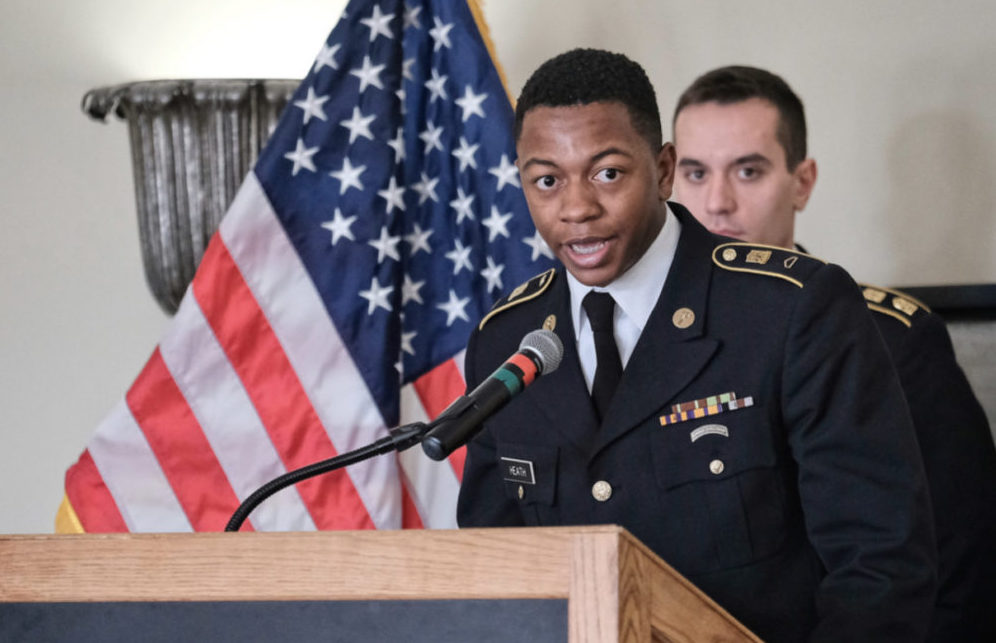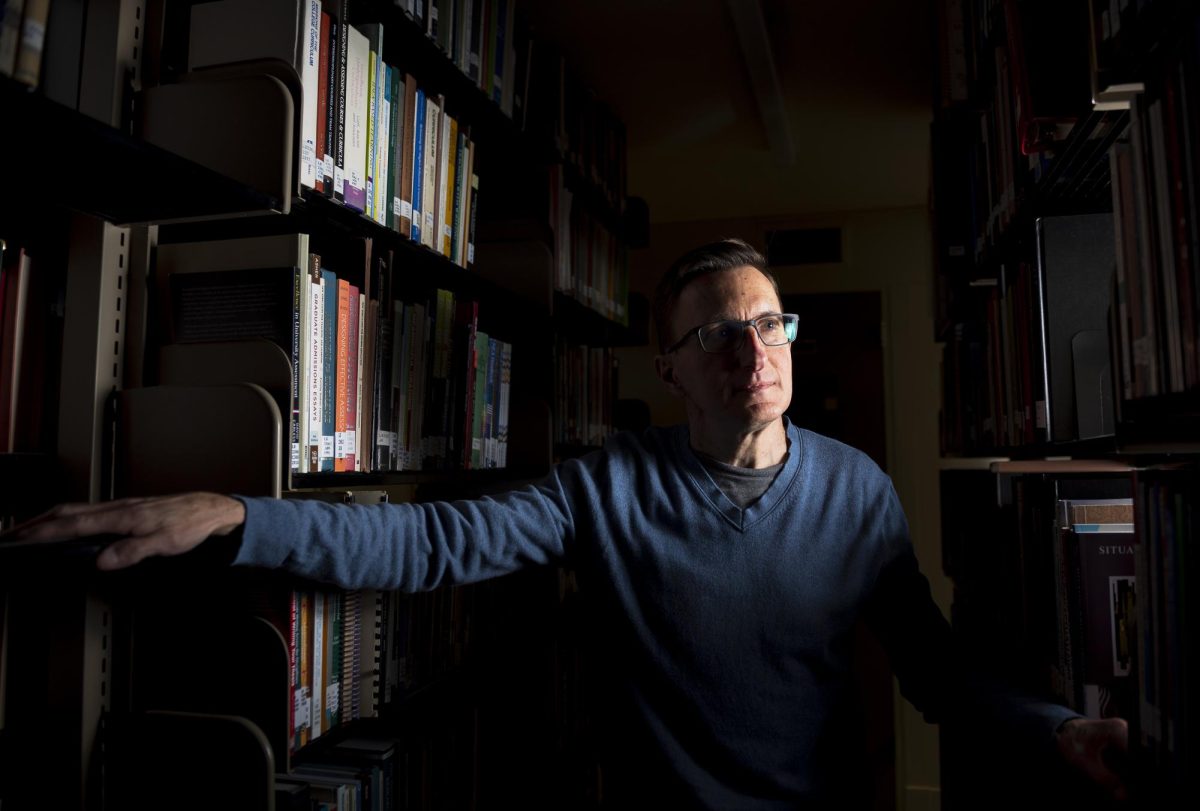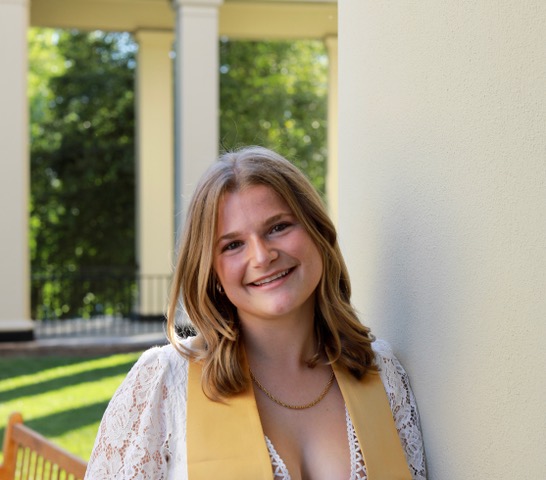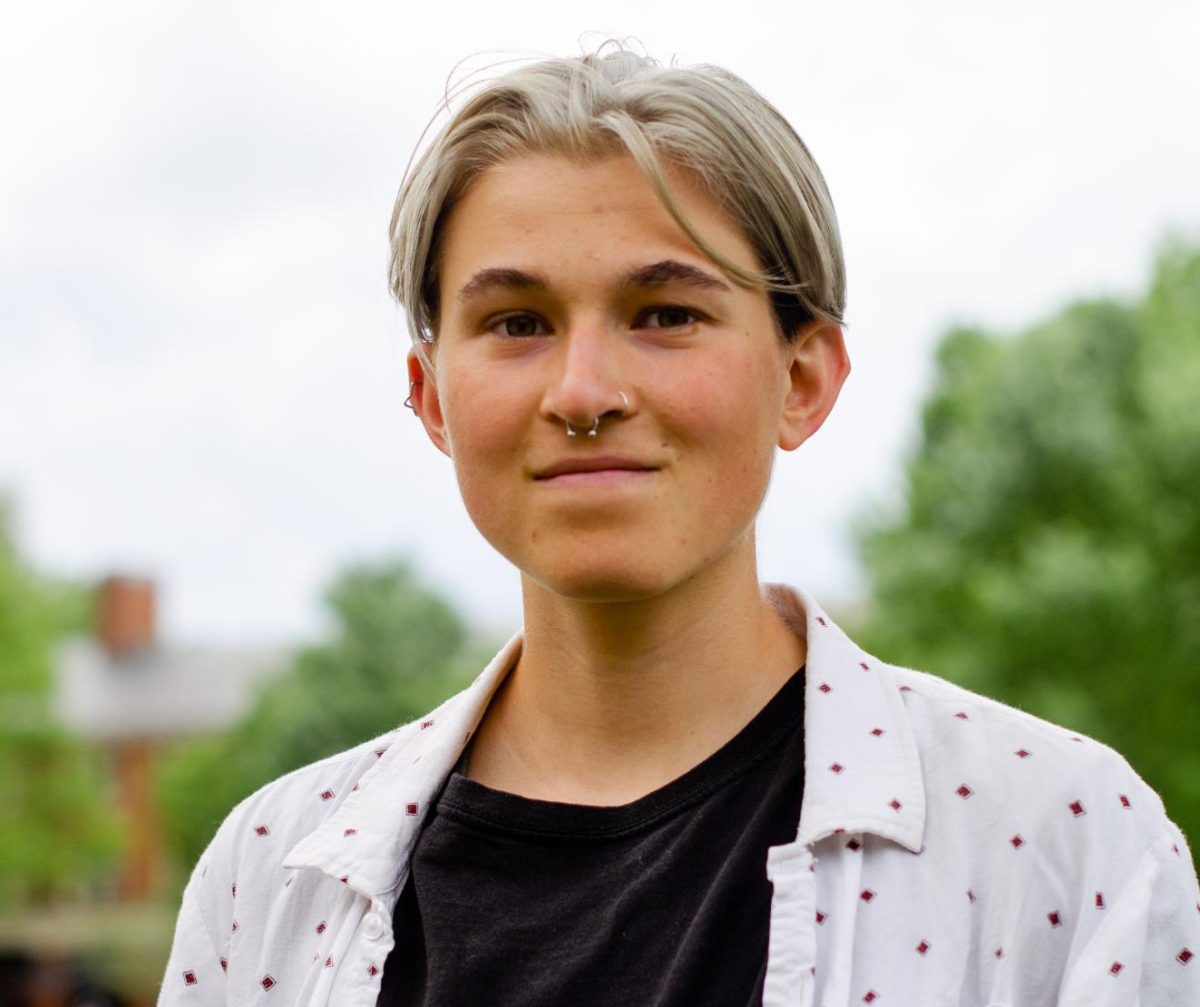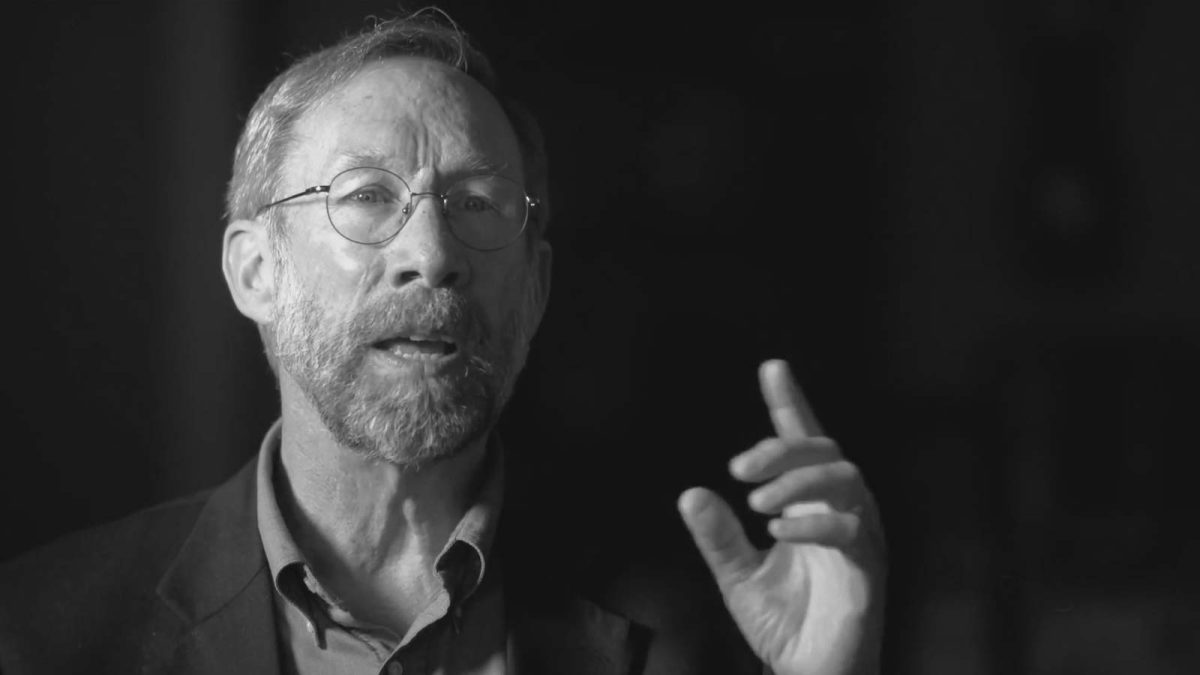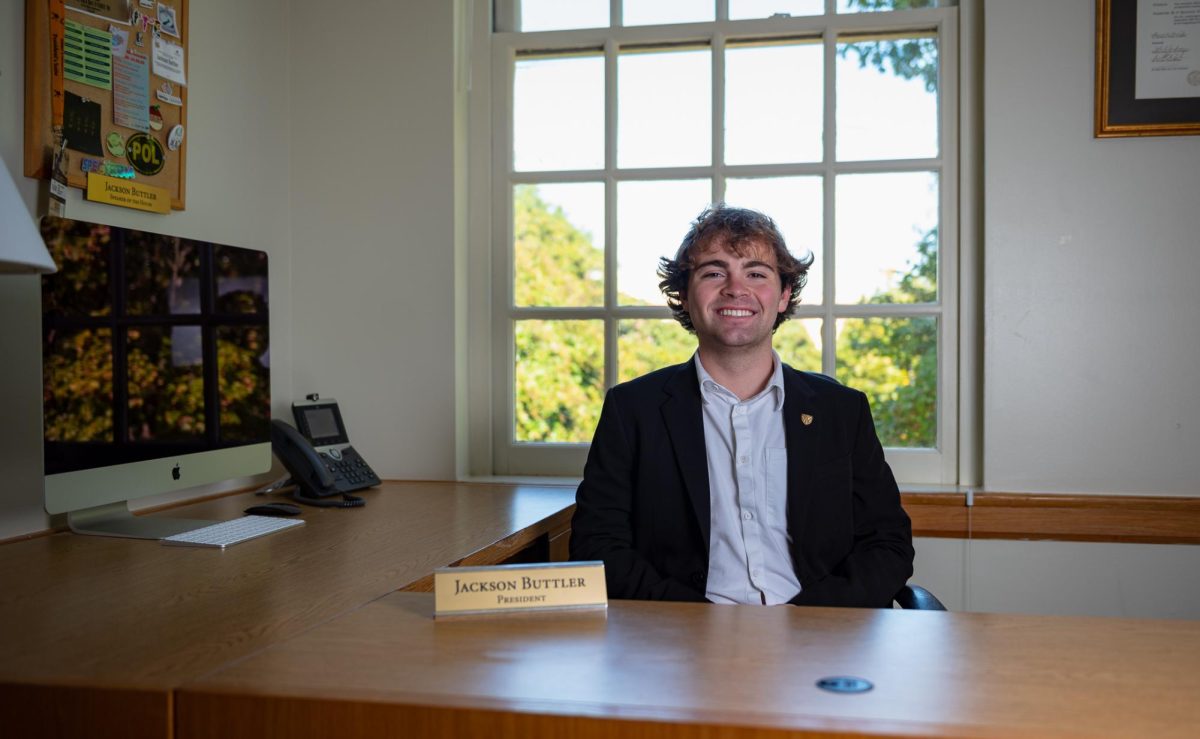The combination of COVID-19 and a nationwide racial justice movement has reinforced the need for discussions and dialogue on campus more than ever, and no person has come more into the spotlight than Student Government President Miles Middleton.
Molded by, as he described them, his values of “service and duty,” Middleton has worked across campus on both issues. In an extraordinary year, he’s focusing on keeping the community engaged, safe, and accountable. Middleton is a senior from Amityville, N.Y. with majors in politics & international affairs and history.
What would you say to students who are nervous about COVID-19 spreading on campus?
I like to say keep hope, keep faith, be encouraged. You look at the dashboard, you look at where we are in our country and whatnot, and it’s very hard to stay hopeful. But I really do believe Wake Forest can stay on campus through November. I mean it’s been what, three weeks? All we have to do is just keep it up.
Now there’s a different issue, there are so many people, particularly freshmen, who feel isolated, who feel completely alone. They’re just stuck in their dorms and they just don’t know what to do. We have to find ways to get them out of dorm rooms to connect with people and find their groups.
A lot of things, like the First Year in Focus program, are good for freshmen to join, having a mentor. I think doing the Dating Deacons thing is fun too. Look out for student organizations emails as well. We need to make sure all freshmen have those opportunities.
And more specifically, it’s a matter of can these freshmen reach me. I want them to know that they can reach me anytime, especially if they have a concern and something they want to bring up to the administration. That’s the only way that I can help you, so I really encourage people to reach out to me.
Cases spiked over the weekend. What problems do you see with the current COVID-19 trends on campus?
I’ve got to say, if we’re talking about Aug. 17 being the start date and we have 46 cases [as of Monday], I think we’re in a good spot.
The thing is, if we don’t adapt to what the issues are around us, we’re going to fall on the sword. We as a community have to hold students accountable. When people are packing 30 people into their dorm rooms or going off-campus to a party, we have to be able to call that out. That’s what is making cases go up. It’s not fraternities, it’s not sororities, it could be anyone.
How is Student Government working to build a sense of community this semester?
We are trying to utilize our committees more, to focus on our individual work and prompt more initiatives for students. I know a lot of our Student Government representatives are working with Campus Rec, our Diversity and Inclusion Office and our faculty and staff. I can’t take credit for anything. It’s people down on the committee level, figuring out how we can better the Wake Forest community.
What would you say to students, especially freshmen and transfer students, who are having a hard time finding a sense of community?
I don’t want to say, well get out there and do something. What I want to say is look up student organizations. Go on the Link or look at the videos from the Virtual Involvement Fair. Try to find a group that identifies with you and that you can identify with and carry on with it. I got into Student Government because I identified with service and leadership. There are a lot of people on campus really trying to do those things.
You ran on a platform of social justice. Do you think the university’s response to the Black Lives Matter protests was effective? Did it go far enough?
Absolutely. I think the university made the right first steps. I think we still have a lot of work to do. We’re not putting anything against the university, but we would like to see a little more initiative, a little more work put in. Which they’ve done — the President’s commission has come out with a report. That’s a long-term thing. And we need to think long-term rather than in the short-term. We need to institutionalize different things for our minority students that will last long and build foundations for the future.
What that pertains to with everything on campus now, we have to protect and more so assert the fact that there is an election coming up. We have to be able to deal with the aftermath and be able to respond effectively.
As a Student Government leader, what steps do want to take regarding racial issues on campus and what steps are you taking right now?
From the Student Government side, we’ve created an Election Task Force. We’re working heavily to make sure that one, we’re getting the voter turnout up, and two, making sure people know they can vote right up the street at the First Assembly Church. So that’s one thing.
There are also a few things the administration will be rolling out in the coming month or so, about different committees that are being created to go over Wake Forest University policies and things like that. I know they’re looking into courses, a diversity module that students had to take. That was new. Those are good steps right there. Of course modules, of course voting, of course the committees that might be coming up. And then obviously the institutionalized things that President Nathan Hatch outlined. I think those are the things we need right now.
Editor’s note: This interview has been edited and condensed for clarity and AP style.

